As a BetterHelp affiliate, we receive compensation from BetterHelp if you purchase products or services through the links provided
Reiki is a holistic healing technique that originates from Japan. Its practice aims to restore balance and harmony within the body, mind, and spirit, by tapping into the universal life force energy. Developed by Dr. Mikao Usui in the early 20th century, Reiki has since gained global recognition as a powerful yet non-invasive complementary therapy.
As Reiki continues to gain popularity, some practitioners and recipients view it as a spiritual practice, while others consider it a standalone healing modality. Contrary to what some might believe, Reiki is not a religion but a spiritual path emphasizing self-growth, self-awareness, and a deepened connection to the energetic world.
Key Takeaways
- Reiki is a spiritual healing practice originating from Japan and promotes self-growth.
- It is not a religion but a spiritual path fostering balance and harmony.
- The Reiki method can positively impact mental and emotional health for practitioners and recipients alike.
 Origins of Reiki
Origins of Reiki
Reiki has its roots in Japanese history, developed by Mikao Usui. In the early 1900s, Usui’s spiritual journey led him to discover and develop this unique healing technique. His teachings became the foundation of what we now know as Usui Reiki.
Mikao Usui was a spiritual seeker, exploring different paths of healing and enlightenment throughout his life. His search eventually led him to the sacred Mount Kurama, where he meditated and fasted for 21 days. During this time, it is said that he received the powerful energy called Reiki in a mystical vision.
Key aspects of Usui Reiki system:
- Focuses on balancing the body’s energy centers, or chakras.
- Uses specific hand positions to channel healing energy.
- Encourages self-healing and spiritual growth.
After his profound experience, Usui dedicated his life to sharing this newfound knowledge with others. He developed a method of teaching Reiki that allowed practitioners to learn and adapt the practice to their own needs. This led to the Usui Reiki system, one of the most popular energy healing modalities worldwide.
Reiki has evolved into various forms and styles, but the core principles remain unchanged. It’s a gentle, non-invasive healing technique that promotes relaxation, stress reduction, and emotional healing. The foundational teachings of Reiki continue to inspire and guide practitioners, helping them nurture their healing abilities and empower others to do the same.
Key takeaway: Reiki originated in Japan and was developed by Mikao Usui through his spiritual journey. The Usui Reiki system balances the body’s energy centers and promotes self-healing and spiritual growth.

Overview: Understanding Reiki
Reiki is a spiritual practice that originated in Japan in the early 20th century. Reiki’s core revolves around believing in a universal life force energy that flows through all living things. Reiki practitioners believe channeling this energy can promote healing, relaxation, and well-being.
You might have heard about Reiki in the context of alternative medicine because it’s often used as a complementary healing technique. Reiki practitioners use a series of hand positions to transfer their life force energy to others, helping them to feel more balanced and at ease. The idea is that transmitting this positive energy can clear any energetic blockages that might be causing stress or illness.
When practicing Reiki, the focus is on the concept of intention. It’s important to have a clear intention when offering a Reiki treatment – whether you’re trying to alleviate physical pain emotional distress or just providing an overall sense of well-being. This intention helps guide the energy flow and supports a positive outcome for the practitioner and the recipient.
You should remember that Reiki is a holistic practice that addresses your physical symptoms and emotional and spiritual well-being. It is not a religion but rather a belief in the interconnectedness of all things. There’s no need for any specific religious affiliation to enjoy the benefits of Reiki, and people of all faiths can embrace it to enhance their life and spiritual journey.
Key Takeaway: Reiki is a gentle, non-invasive form of alternative healing that uses the concept of universal life force energy to promote overall well-being. It is not a religion but a spiritual practice open to individuals of all faiths and backgrounds.
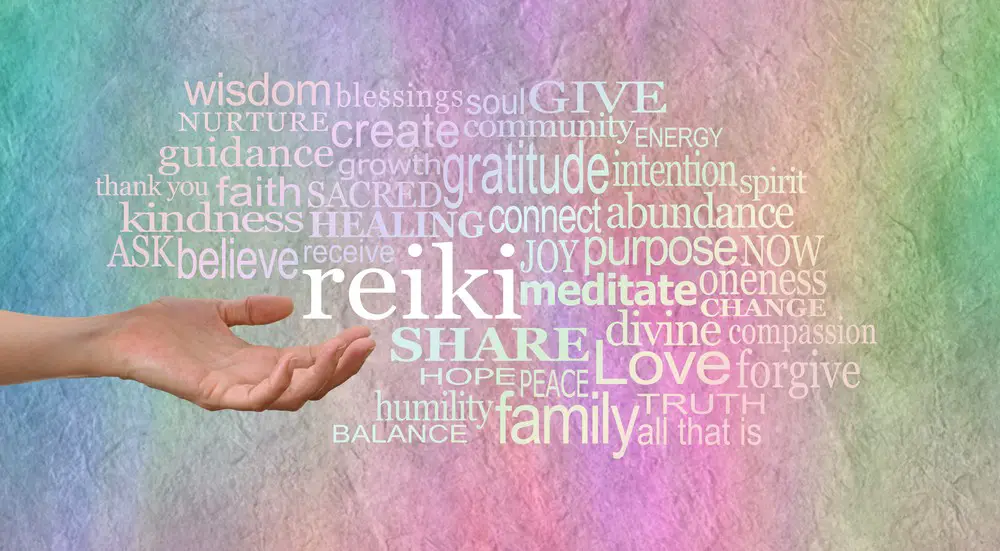
The Reiki Practice
Learning Reiki
Reiki is a spiritual healing practice that you can learn through special training and education. Various Reiki classes are available to introduce you to this spiritual practice’s foundational beliefs and techniques. As a student, you’ll progress through different levels, guided by a Reiki practitioner or a Reiki master who offers attunement – a sacred process that connects you to the Reiki energy.
Role of a Reiki Practitioner
A Reiki practitioner serves as a conduit for the life force energy, channeling it through their hands and directing it towards your body. Their main goal is to help you balance your mind, body, and spirit, promoting relaxation and natural healing. Many Reiki practitioners adhere to specific ethical and professional standards to ensure safe and compassionate sessions.
Reiki Session Explained
During a Reiki session, you’ll be asked to lie comfortably while the Reiki practitioner gently places their hands on or slightly above your body. They use a series of hand positions to help the life force energy flow smoothly and rebalance your energy centers. Each session can be tailored to your specific health needs and goals, and you may experience a deep sense of relaxation and inner peace.
Understanding Distant Reiki
Distant Reiki is a unique healing technique in which a Reiki practitioner remotely sends life force energy to someone in need. This is possible because the energy transcends physical barriers and can reach you regardless of location. Distant Reiki offers a flexible and convenient option for those unable to attend in-person sessions, allowing you to experience the benefits of Reiki wherever you are.
The Concept of Life Force Energy in Reiki
Life force energy is a fundamental concept in Reiki that represents the universal energy flowing through every living thing. It connects your mind, body, and spirit, and is essential for maintaining balance and health. Reiki practitioners channel this energy, helping you to remove blockages and restore the natural flow of life force energy within your body.
Reiki as a Spiritual Healing Technique
Reiki is considered a spiritual healing technique because it addresses more than just physical ailments. It works deeper, connecting with your spirit and refining your well-being’s emotional and mental aspects. Through this holistic approach, Reiki aims to assist you in overcoming life’s challenges, enhancing your spiritual growth, and bringing harmony to your life.
Issues Treated by Reiki
Reiki can address various health issues, including anxiety, depression, and chronic pain. It has been regarded as a natural and alternative medicine option, offering a gentle and non-invasive method for tackling physical and emotional challenges. While Reiki should not replace necessary medical care, many people have found it beneficial for promoting relaxation, stress reduction, and overall well-being.
Reiki in Medicine and Healthcare
Reiki is gradually gaining recognition in the medical field, with some hospitals and healthcare facilities incorporating it into their systems. Physicians and other medical professionals are increasingly open to alternative healing methods like Reiki, recognizing its potential for improving patient care and overall wellness.
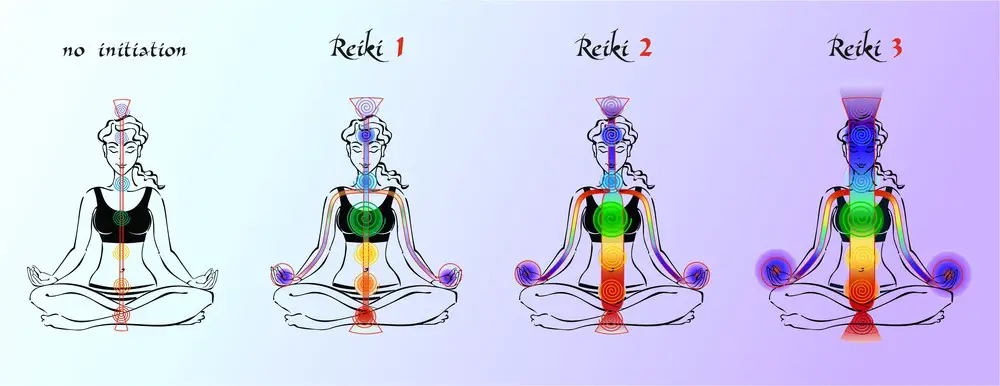
Reiki, Faith and Religion
Common Beliefs
Reiki is often considered a spiritual practice rather than a religion. However, it does share some elements with various religious beliefs. At its core, Reiki is about channeling energy to promote healing, balance, and well-being. Most practitioners believe in a higher power or universal life force connecting all living beings.
Some common beliefs in Reiki include:
- The existence of a life force energy that flows through all living things
- A Reiki practitioner can channel that energy to promote healing
- The practice of Reiki is for the greater good and can benefit the practitioner and recipient alike
Reiki in Christianity
It’s worth noting that some Christians have practiced Reiki. They may view the life force energy as God’s love or the Holy Spirit at work. This idea aligns with the belief in a healing power sourced from a higher power.
However, not everyone within the Christian community embraces Reiki. The United States Conference of Catholic Bishops‘ Committee on Doctrine issued a statement advising against the use of Reiki in Catholic hospitals and by Catholic practitioners. They argue that Reiki lacks scientific support and may confuse the faithful regarding the nature of prayer and trust in Christ.
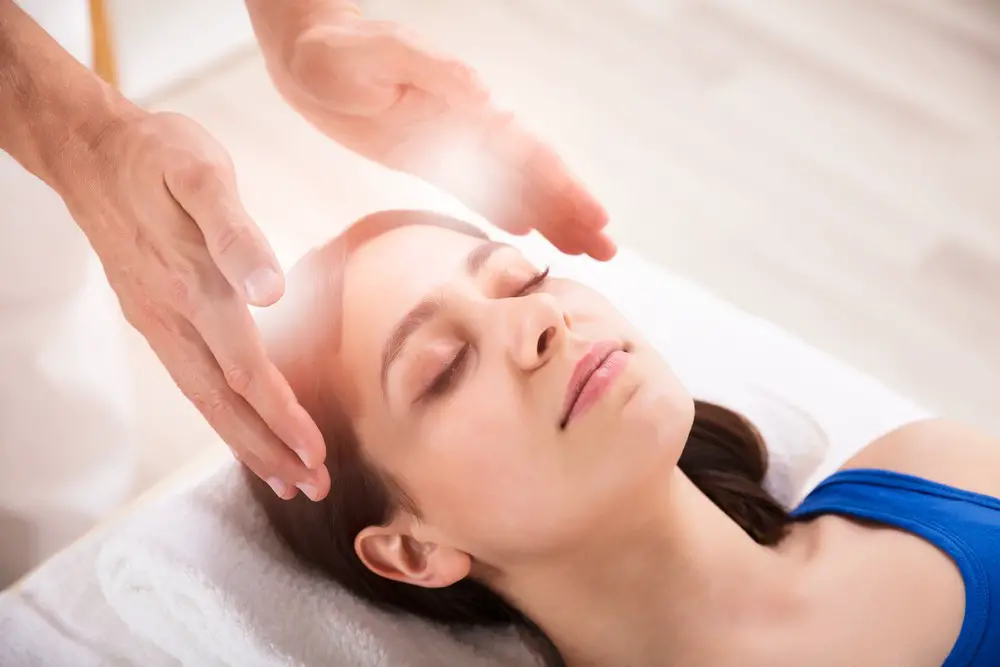
Reiki and the Concept of Higher Power
Reiki emphasizes the importance of a higher power, which may align with various religious beliefs. While not explicitly religious, it embraces the spiritual aspect of any faith. As a Reiki practitioner, you can channel this higher power to promote healing and well-being in yourself and others. By doing so, you connect with the spiritual energies many religions cherish.
In conclusion, your experience with Reiki may or may not intertwine directly with your religious beliefs. However, its principles of promoting well-being, positive change, and healing can resonate across various faiths and spiritual paths.
Impact of Reiki on Mental and Emotional Health
Reiki can play a significant role in supporting your mental and emotional well-being. As a gentle, non-invasive practice, it promotes relaxation and harmony. Here are some ways Reiki can benefit your mental and emotional health:
- Reducing stress and anxiety: Reiki helps to calm your mind and release emotional tension by activating your natural relaxation response. As a result, you may experience a reduction in stress and anxiety levels, helping you to better cope with daily challenges.
- Enhancing self-awareness: When practicing Reiki, you must focus on your thoughts, emotions, and body sensations. This increased self-awareness can lead to a better understanding of your emotions and thought patterns, empowering you to make positive changes in your life.
- Improving emotional balance: Reiki can help you release emotions that no longer serve you, such as anger, fear, and resentment. By clearing these emotions, you can create space for higher-vibrational emotions like love, joy, and gratitude, contributing to a greater sense of emotional balance.
- Promoting harmony in relationships: Upon achieving inner balance and peace, you’ll naturally become more understanding and compassionate towards others. This can lead to improved communication and connection with the people around you, fostering greater harmony in your relationships.
Try incorporating regular Reiki sessions into your self-care routine to make the most of Reiki’s impact on your mental and emotional health. Additionally, consider finding a Reiki practitioner or teacher who can guide you in deepening your practice. Remember that Reiki is a complementary therapy, so always consult your healthcare professional regarding medical conditions or concerns.
Practical Aspects of Reiki
Reiki in Everyday Life
Reiki can be a helpful tool in your daily life, promoting balance and peace as you navigate through real-life issues. Integrating Reiki in your lifestyle can be quite simple. You can use it to connect with family and friends, facilitating communication and deeper understanding. Here are some ways to incorporate Reiki in everyday life:
- Morning routine: Start your day with a brief Reiki self-treatment to help you remain grounded and focused.
- Connecting with others: Apply Reiki to your conversations with loved ones, creating an atmosphere of harmony.
- Stress relief: Utilize Reiki to support relaxation and stress reduction in difficult situations.
Influence on Business and Education
Reiki’s principles can positively impact both business and educational environments. Encouraging a holistic approach to decision-making and problem-solving cultivates an atmosphere of open-mindedness, collaboration, and ethics. Some applications include:
- Workplace wellness programs: Implement Reiki sessions as part of employee wellness initiatives to improve overall well-being and productivity.
- Education: Introduce Reiki techniques to students to manage stress and enhance focus during study sessions.
Resources and Guidelines
The International Association of Reiki Professionals (IARP) offers resources, guidelines, and stories from the Reiki community to help you explore and deepen your practice. Some valuable resources include:
- Reiki stories: Read personal accounts of Reiki experiences to understand its impact and potential better.
- Reiki store: Browse Reiki-related products, such as music, symbols, and more.
- Japanese words: Familiarize yourself with the terminology used in Reiki, deepening your connection to the practice.
- Guidelines: Follow specific guidelines to ensure your Reiki practice remains safe, ethical, and respectful.
Remember to keep a friendly and open mindset as you explore the practical aspects of Reiki. In doing so, you’ll find that it can bring balance and harmony to various aspects of your life, from your relationships to your professional pursuits.
Frequently Asked Questions

What are the origins of Reiki?
Reiki is a Japanese healing technique that was developed in the early 20th century by Mikao Usui. It’s a stress reduction and relaxation method, often used to promote physical and emotional healing. Originally, Reiki was rooted in Japanese spirituality, but it has evolved to encompass a variety of beliefs and practices.
How does Reiki relate to Christianity?
Reiki isn’t directly related to Christianity, but some practitioners blend Christian beliefs with Reiki principles, resulting in a spiritual healing practice. It’s important to remember that while there may be some similarities, Reiki isn’t a religious practice and doesn’t require adherence to a specific set of beliefs.
Is Reiki associated with any specific religion?
Reiki isn’t tied to any particular religion, and people from various religious backgrounds can practice it. At its core, Reiki is a healing technique that focuses on balancing energy, so it can be adapted to various spiritual beliefs.
What are the core beliefs of Reiki?
Reiki is based on several key principles:
- Energy is all around us, and we can channel it to help heal ourselves and others.
- A universal life force energy, often called “ki” or “chi,” connects everything.
- Balancing our energy can promote mental, emotional, and physical healing.
It’s also common for Reiki practitioners to follow the Five Reiki Principles, which are guidelines for living a fulfilling life:
- Just for today, I will not anger.
- Just for today, I will not worry.
- Just for today, I will be grateful.
- Just for today, I will do my work honestly.
- Just for today, I will be kind to every living thing.
How is Reiki viewed by the Church of England?
The Church of England doesn’t have an official stance on Reiki. However, some within the Church have expressed concerns about Reiki’s origins and compatibility with Christian beliefs. As a result, individual opinions may vary among clergy and parishioners.
Do any Buddhist practices relate to Reiki?
Reiki is similar to certain Buddhist practices, such as mindfulness and meditation. Both aim to promote well-being by focusing on the mind and cultivating positive energy. While Reiki isn’t a Buddhist practice per se, some practitioners incorporate Buddhist concepts or techniques into their Reiki practice.
Remember, Reiki can be adapted to various spiritual beliefs and is open to people of any religious background. Its primary focus is on promoting healing and well-being, so always feel free to explore and find the approach that works best for you.
About Jacob Maslow
After surviving the traumatizing events of 9/11, I took it upon myself to heal through helping others. I’m the primary caregiver of my children and understand from first-hand experience the lonely paths you have to walk as a partner and parent when leaving an unhealthy relationship.
We’re all echoing in a dark space that doesn’t have to be this empty, and that’s been my mission since finding solace and recovery in therapy: To help comfort others who are still in shock and at the prime of their struggle.
I came across BetterHelp after searching for this type of community. I wanted to belong to a body of proactive therapists and supportive therapy veterans that allowed me to see other sides of the story.
It was unconventional, and that’s what attracted me most. During my most challenging times, when my ex-wife completely cut me off from my children, I found comfort and clarity through BetterHelp.
Instead of being chained to a strict therapist recommendation, I was in charge of who I felt understood my struggle most. That allowed me to find my true peace, as I was reunited with those who read behind my words and had first-hand experience with my trauma.
Recovery is a choice; with BetterHelp, that choice will be a few clicks away. You can join their couples-oriented platform, Regain.us, for those stuck with family estrangement and toxic relationship patterns.
- 3 Ways Wearing a Hat Can Help Lower Your Stress Levels - April 19, 2025
- Breaking the Silence: Why Men’s Mental Health Matters More Than Ever - April 15, 2025
- How to Transform a Home’s Patio Space into a Relaxing Space - March 23, 2025
This site contains affiliate links to products. We will receive a commission for purchases made through these links.

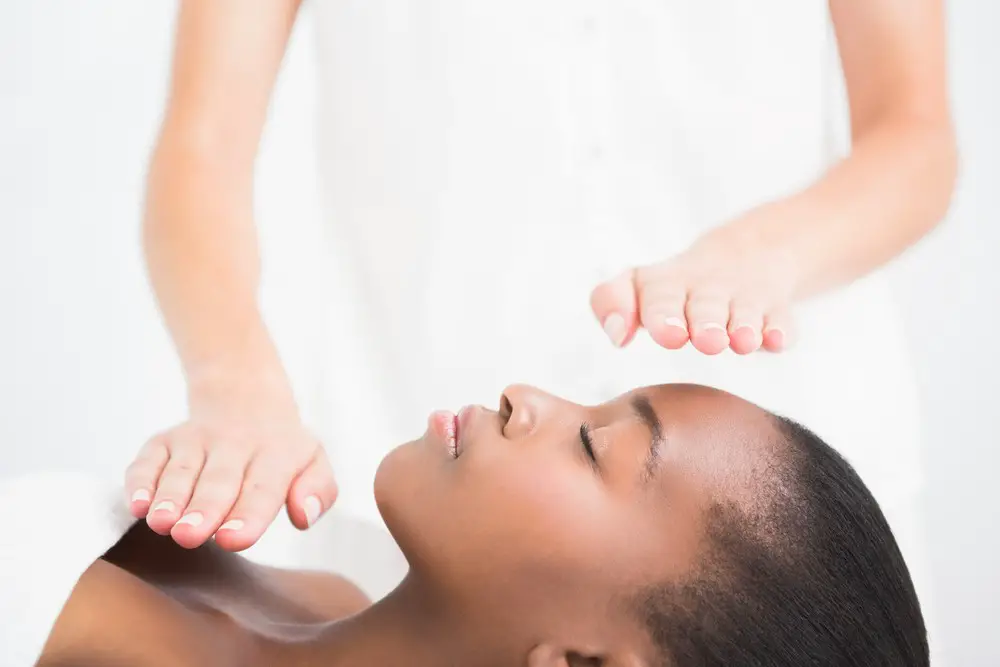
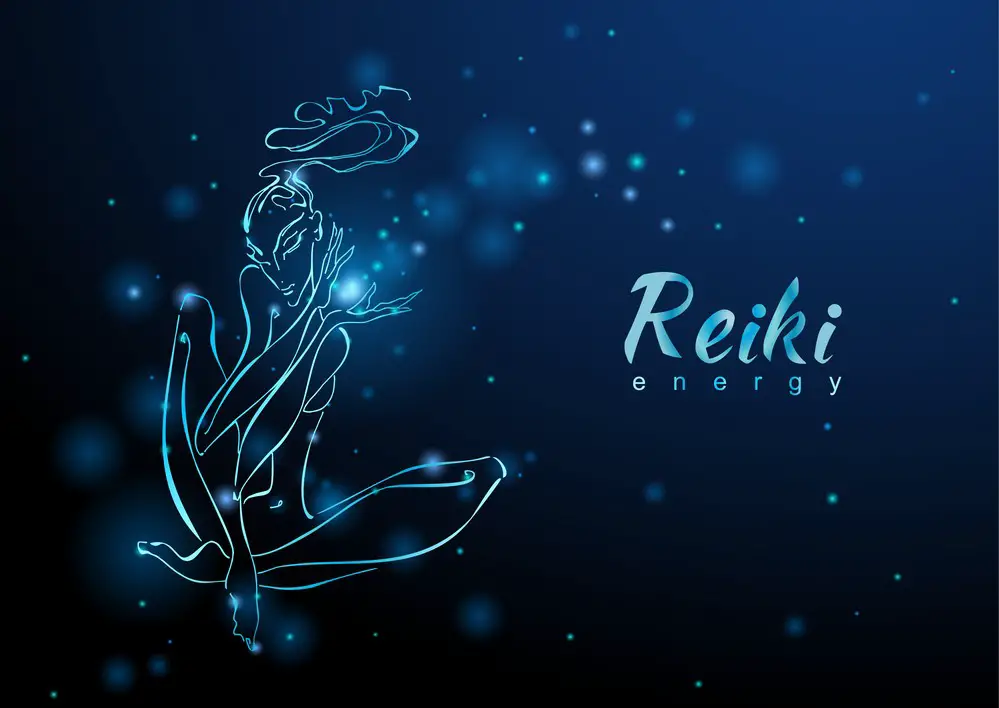 Origins of Reiki
Origins of Reiki
